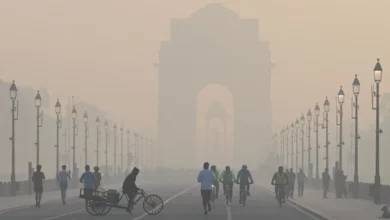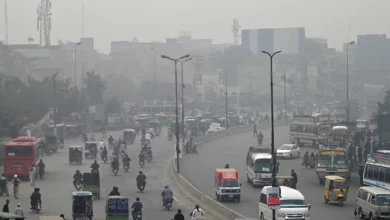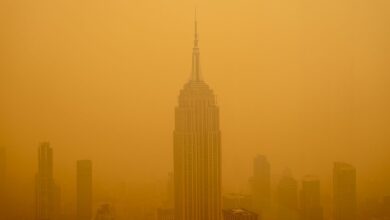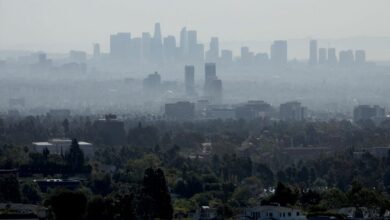When first reading “Silent Spring,” I only realized later that it was one of the first and most important books to help open the door to the worldwide environmental movement. By Rachel Carson, it is a classic environmental study that discussed the reckless annihilation of fish and birds through pesticide use.
The book argued that uncontrolled and unexamined pesticide use was harming and even killing not only animals and birds, but also humans. Its title was meant to evoke a spring in which no birdsong could be heard, because birds had become extinct.
When "Silent Spring" was published, Carson was already a well-known writer on natural history, but had never been a social critic. The book was widely read and featured on bestseller lists — and inspired widespread public concern with pesticides and the pollution of the environment. Silent Spring facilitated the ban of the pesticide DDT in 1972 in the US. In response to its publication and the uproar that ensued, US president John F. Kennedy directed the country's Science Advisory Committee to investigate Carson's claims. Their investigation vindicated her work, and led to an immediate tightening of chemical pesticides regulation.
In my view, we are currently not very far from a similar situation in Egypt. Indiscriminate and systematic extermination of animal species seems to be the strategy of "concerned" authorities in Egypt. Over the past few years whenever there is a crisis, be it a flu "epidemic" or a shark attack, the immediate reaction has been to attempt to eliminate the organisms connected to the problem. Action is taken without looking into the real reasons behind the problem, without consulting experts or scientists, and without gathering enough data to objectively assess the situation and propose well grounded means to handle it.
While these actions reveal serious defects in the way crises are handled, in my opinion the underlying problem is that they reveal a crisis-driven society that does not believe in science as a solution to its problems and holds no respect for those who practice it.
Today, after a revolution, so much has changed in Egypt. But change has not affected environmental issues — except maybe a personal urge to contribute to the ‘New Egypt.’
During this period we need to focus on the natural resources we have. Our priority should be to protect and wisely use them. The basic elements are water, air and land.
Water: Serious efforts should go into our meager water resources, mainly the Nile. Beside the issue of how much water we can get, efforts should go into cleaning its polluted water and saving every drop from waste. Sources of pollution are many but arguably the most important are industrial waste and agricultural waste water. Both bring large quantities of chemicals into the Nile. Cleaning up the river will require close collaboration between the ministry of environment and many other stakeholders such as ministries, industries. Making the best use of Nile water also means minimizing the amounts wasted through inadequate irrigation practices and leakage.
Air: Air pollution concerns Cairo, other larger cities in the Delta and industrial zones. Industry and to a lesser extent traffic are the main culprits. Law enforcement, close collaboration between ministries and a set of innovative solutions are needed to deal with air pollution in cities.
Land: Fertile agricultural land in the Delta is a limited resource which must be protected and rehabilitated. Every year thousands of fertile feddans are lost to urbanization or become barren due to over-use. This has to stop. Furthermore, land reclamation in the desert should focus on the easily accessible areas rather than mega-projects in remote areas.
These are basic points that must set the stage for further discussions on environmental issues, energy and protected areas among other issues. We have to work hard to ensure that the silent spring is not close, that we do not lose opportunities to get a cleaner environment, better health and a sustainable future. But in order to do this we need to specify our concerns, set priorities and determine the needs and the path we will take. We urgently need to rely upon scientific research and scientists. Also there is an imperative need for political support, a clear intention to prioritize environmental issues, and an understanding of the importance they have on the life of all Egyptians. After all, it was because President Kennedy read what Carson wrote in her book and acted upon her scientific expertise seriously, that the US and the world was spared the dangers caused by the unregulated use of chemical pollutants.




